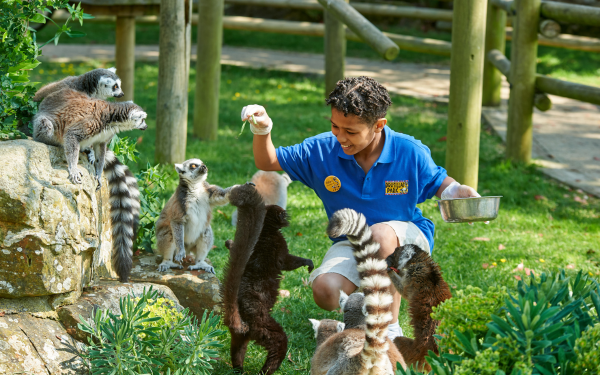This company has no active jobs
Company Information
- Total Jobs 0 Jobs
- Category Medical & Health
- Company Location Macau
- Company Size 51-200 employees
Something About Company
How To Become A Zoo Keeper?
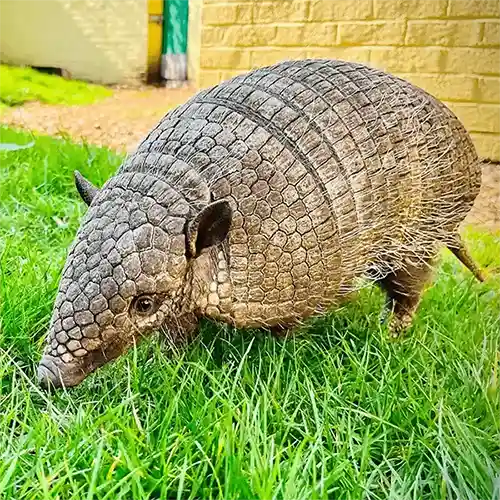

“The achievement of a country and its moral progress can be judged by the way its animals are treated.” – Mahatma Gandhi
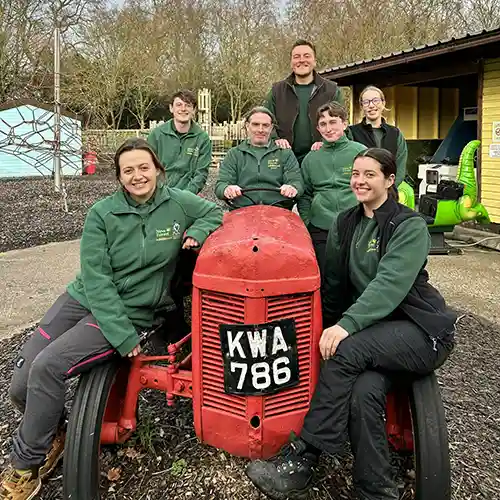

Do you love animals and dream of working in a zoo? Zoo keepers are key in safeguarding wildlife and caring for animals. At locations like the Zoological Society of London (ZSL), over 20,000 animals get the care they need from specialists.
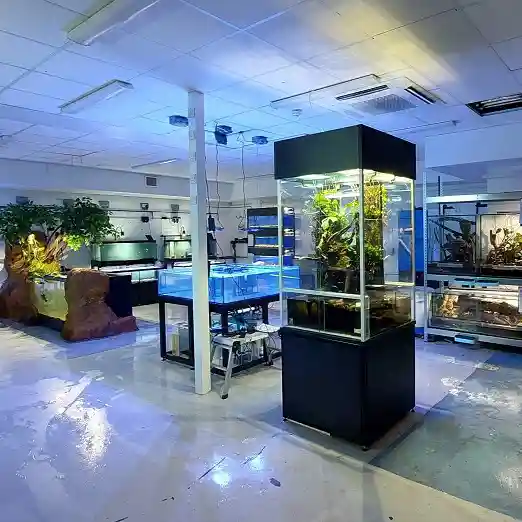

To become a zoo keeper, you need hard work, education, and a love for animals. This job is exciting, letting you work with numerous species and aid with essential conservation work. If you’re into wildlife or animal welfare, zookeeping might be best for you.
Beginning your zoo keeper profession suggests learning what’s required. This guide will cover education, experience, and more. It’s all you require to know to start a satisfying zookeeping career.
Comprehending the Role of a Zookeeper
Exploring what a zookeeper does exposes a function loaded with difficulties and benefits. They focus on animal welfare and preservation. Zookeepers strive to keep animals healthy and delighted in their care.
Daily Responsibilities and Tasks
A zookeeper‘s day is filled with important tasks:
- Preparing meals that fulfill each animal’s nutritional requirements
- Cleaning enclosures to keep them clean and safe
- Watching over animal health and behaviour
- Providing medicines and treatments as needed
- Producing activities to keep animals psychologically sharp
Working Environment and Conditions
Zookeepers work outside in all kinds of weather. They handle both indoor and outdoor spaces. The task requires being fit and able to handle the demands of caring for animals.
“Being a zookeeper is more than a job – it’s a passionate dedication to animal care and conservation.”
Kinds of Animals and Specialisations
Zookeepers can specialise in lots of animal groups:
- Primates
- Big cats
- Marine mammals
- Reptiles
- Birds
Your role may involve dealing with 2-5 different animal types. This needs a lot of understanding and the capability to adjust.
Necessary Skills and Personal Qualities for Zoo Keeping
To be a top zookeeper, you require more than simply a love for animals. Your job will be tough and need you to deal with animals and people well. You’ll also require to understand animal behaviour.
What zoos look for in individuals consists of:
- Exceptional patience and emotional durability
- Strong physical fitness and stamina
- Eager observation skills
- Capability to remain calm under pressure
- High level of compassion towards animals
Getting hands-on experience is essential to mastering this role. You’ll need to show:
- Advanced understanding of animal care methods
- Efficiency in animal handling and safety protocols
- Efficient interaction with both animals and human visitors
“A terrific zookeeper links science, compassion, and conservation in every interaction with animals.”
You ought to learn about animal nutrition, behaviour, and fundamental veterinarian care. Many zookeepers learn through training, volunteering, and ongoing learning.
Zookeeper work is not just a job. It’s a huge dedication to teaching about wildlife and assisting conservation. Your enthusiasm and hard work will make you stand apart in this satisfying profession.
How to Become a Zoo Keeper
Beginning a profession as a zookeeper requires careful preparation and education. You must first understand the instructional needs and training courses. These will turn your love for animals into a task.
Educational Requirements
To be a fantastic zookeeper, you require a strong academic base. Many tasks look for certain credentials:
- At least 5 GCSEs at grade 4 or above, zookeeper including English, maths, and science
- A levels or higher education certifications
- A college degree in biology or animal science
- Level 3 Diploma in Animal Management
Required Certifications
Getting unique certifications can actually assist you in your zookeeper profession. Important ones include:
- Diploma in Management of Zoo and Aquarium Animals (DMZAA)
- Zookeeping Level 3 Diploma (RQF)
- Animal dealing with certificates
- First aid credentials
Training Programs and Apprenticeships
Getting hands-on experience is type in zookeeper training. Lots of locations offer great opportunities:
- Unpaid apprenticeships at wildlife parks
- Internship programmes at popular zoos
- Practical training at locations like Colchester Zoo and Dartmoor Zoo
- Volunteering to acquire real-world abilities
Pro suggestion: Create a comprehensive portfolio to reveal your animal care abilities. It will assist you in job applications.
Building Relevant Experience in Animal Care
Getting hands-on experience is key for those wishing to be zookeepers. The task is extremely competitive. So, it’s important to start building a strong base in animal care.
Your journey starts with finding methods to work directly with animals. This is a tactical step.
“Experience is the best instructor in animal care” – Wildlife Conservation Experts
Here work methods to acquire experience dealing with animals:
- Volunteer at local animal shelters to develop fundamental animal dealing with skills
- Look for internships at wildlife rehabilitation centres
- Explore part-time positions at veterinary clinics
- Contact your local zoo for possible volunteer opportunities
is a great way to discover animal behaviour and care. Many zoos and animal shelters are searching for people who want to discover. These places provide terrific opportunities to get hands-on experience and reveal your dedication to animal welfare.
Here are some pointers to maximize your experience:
- Keep a record of your skills and zookeeper interactions
- Get in touch with professionals in animal care
- Request for recommendations and letters of recommendation
- Stay persistent and show your true enthusiasm
Remember, useful experience makes you stand out in the zookeeping world. Every time you deal with animals, you discover more. This increases your chances of getting a job in animal care.
Profession Pathways and Professional Development
Beginning a career as a zookeeper is exciting. It provides lots of opportunities to grow and specialise. Your journey begins with comprehending the various paths in this field.
Entry-Level Positions
Entry-level jobs in zookeeping are a terrific start. They give you hands-on experience. Zoos look for candidates with:
- Level 2 Diploma in Animal Care (minimum certification)
- GCSEs in English and a scientific subject
- Volunteer experience at animal shelters or farms
Profession Progression Opportunities
As you acquire experience, your profession can grow. You can move up to:
- Junior Keeper
- Senior Keeper
- Group Leader
- Specialist Roles
“Continuous learning and useful experience are key to advancing in your zookeeping career.”
Specialised Roles
You can likewise pick unique areas like:
- Conservation breeding programs
- Animal training
- Wildlife research study
- Educational outreach
About 25% of zookeepers get advanced degrees in zoology or animal conservation. Getting Level 4 qualifications can boost your possibilities for senior roles and research.
Working Hours and Physical Demands
Ending up being a zookeeper indicates you’ll work more than just regular hours. You’ll face tough physical challenges and need to be flexible, consisting of weekends and holidays. Zoos are open every day, so you’ll typically work when others relax.
“Zoo keeping is not a normal 9-to-5 job– it’s a way of life of devoted animal care and commitment.”
This task is physically demanding. You’ll work outside in any weather condition, lifting heavy products over 50 pounds. Your tasks might include:
- Early morning feeding schedules
- Cleaning animal enclosures
- Preparing specialised diet plans
- Conducting medical examination
- Maintaining complicated habitats
Shifts can start as early as 5 AM and go late into the night. You’ll be on your feet the majority of the time, moving in between animal zones. Weekends and holidays belong to the task, needing great deals of endurance and commitment.
Despite the obstacles, this task has great rewards. You’ll grow strong, both physically and mentally. You’ll also make remarkable connections with amazing animals.
Health and Safety Considerations
Being a zookeeper includes its own set of difficulties. It’s important to understand how to keep both animals and zookeeper staff safe. This implies following strict health and safety guidelines.
Zookeepers face an unique environment where safety is essential. Research studies show that health and wellness are now as crucial as the zoo‘s primary work.
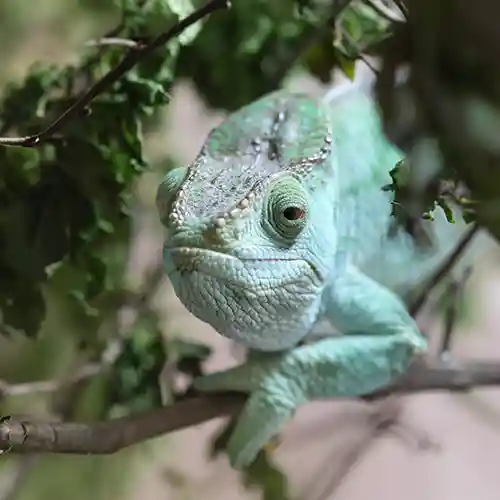

Danger Management Strategies
There are numerous methods to handle risks in zoos:
- Daily checks of animal enclosures for dangers
- Counting animals at the start and end of shifts
- Viewing how visitors act near animals
- Being ready for emergencies
Animal Handling Safety Protocols
Understanding which animals are most unsafe is crucial. Big animals like rhinos can be really dangerous. There have been cases where zookeepers got seriously hurt.
Safety isn’t just about wearing equipment – it’s about knowing animal behaviour and staying alert.
Individual Protective Equipment
Zookeepers require to use the right gear, consisting of:
- Special gloves for handling animals
- Strong shoes for grip and safety
- Clothes that protects against germs
Getting immunized versus diseases like liver disease B and rabies is likewise crucial. It assists keep zookeepers healthy in their tough job.
Salary Expectations and Job Market
Thinking of a career in zoo keeping? It’s important to learn about incomes and the job market. The field is growing, with more chances in the UK.
Let’s look at what zoo keepers can earn at different stages:
- Entry-level zookeepers begin at about ₤ 14,000 a year
- Certified ones make in between ₤ 16,000 and ₤ 22,000
- Senior zookeepers can earn approximately ₤ 30,000 or more
The task outlook for zoo keepers is excellent. The sector is anticipated to grow by 5% in the UK by 2029. This implies around 3,910 brand-new tasks will be offered.
“The Association of Zoos and Aquariums supports professional growth for zoo keepers,” a report says.
Salaries vary based upon a number of things:
- Experience level
- Specialisation
- Where you work
- The zoo’s size and type
While the pay might not be high, the joy of dealing with animals is valuable. The typical salary is around ₤ 17,000. But, total earnings can be between ₤ 13,000 and ₤ 27,000 a year.
Conclusion
Beginning a career in animal care is an exciting journey. It needs devotion, passion, and a love for learning. With over 350 zoos and wildlife places in the UK, there are lots of job opportunities. You’ll get to deal with amazing animals and assist safeguard wildlife.
To be a zoo keeper, you need more than just love for animals. You must have a good understanding of biology, have the ability to interact well, and constantly wish to find out more. You’ll gain hands-on experience, discover animal welfare, and establish a deep respect for nature. About 3,000 individuals in the UK have discovered fulfilling professions in this field.
Your success in zoo keeping originates from mixing science with a love for animals. Whether you’re interested in mammals, birds, or marine life, this job lets you assist with conservation. Every day will bring brand-new challenges and finding out opportunities that will improve your skills and knowledge.
If you enjoy animals and wish to help safeguard wildlife, zoo keeping might be for you. Take on the obstacle, stay curious, and turn your passion for animals into a rewarding profession.
